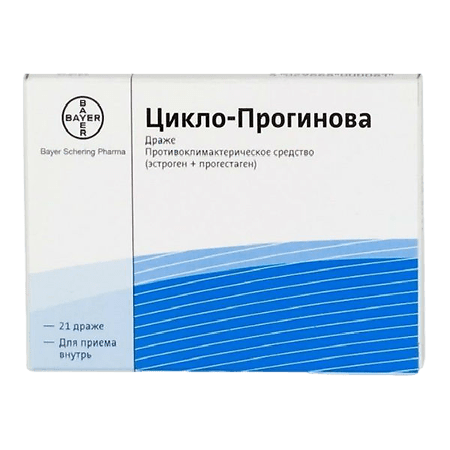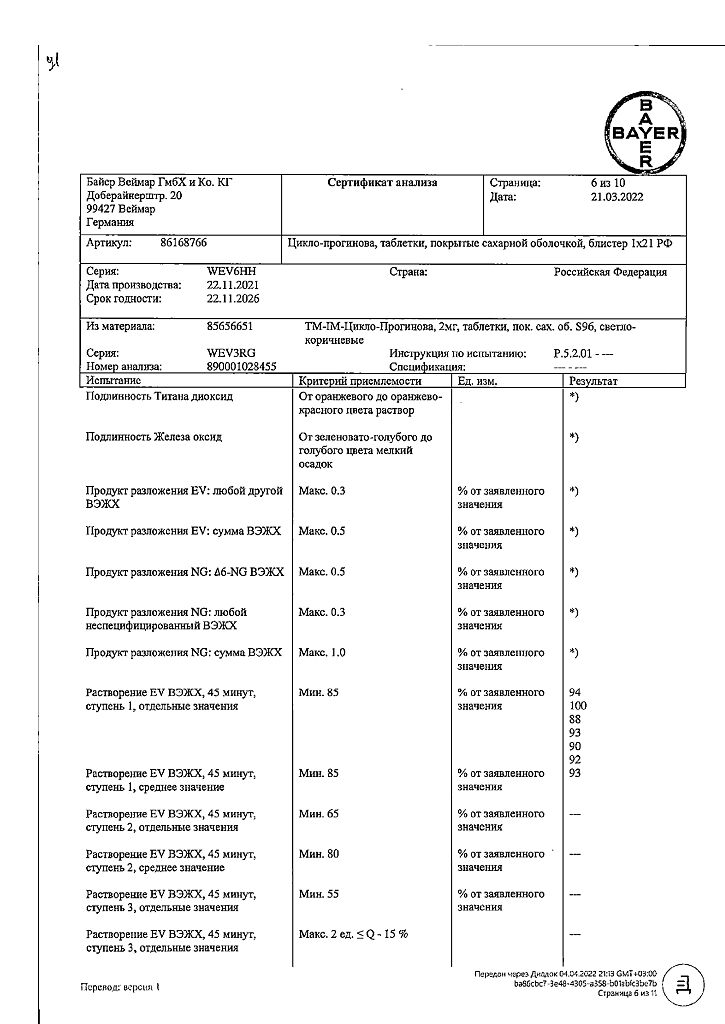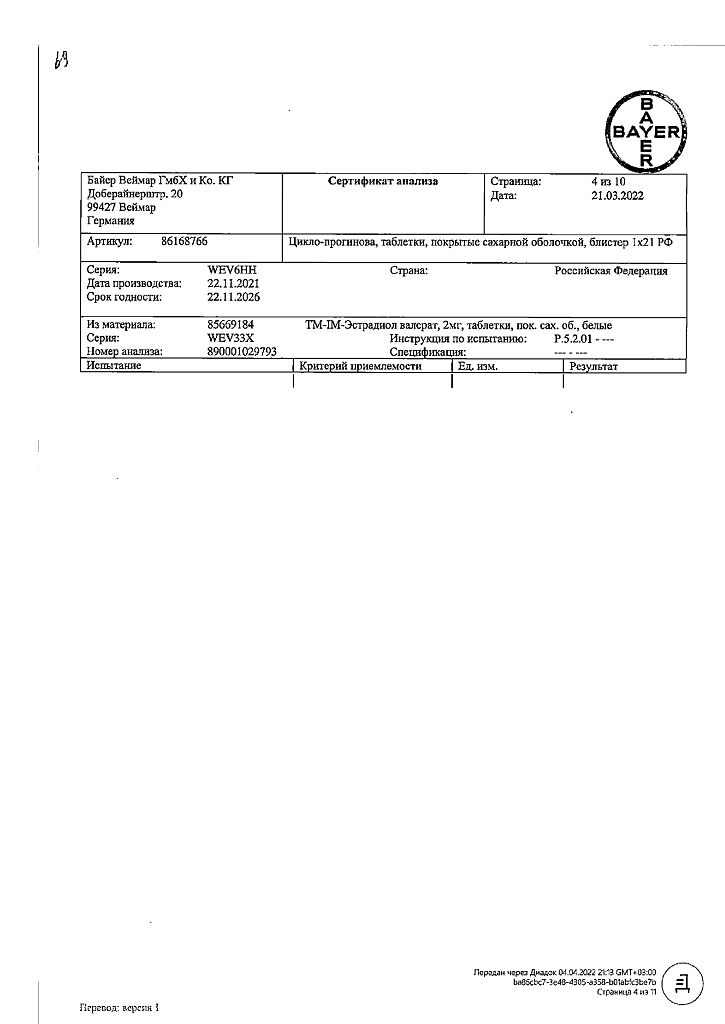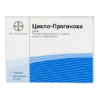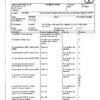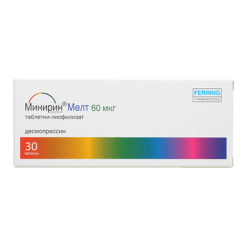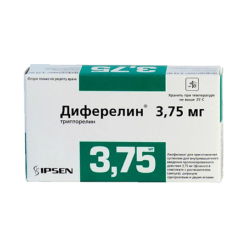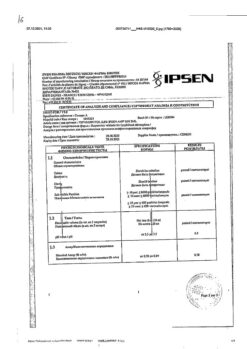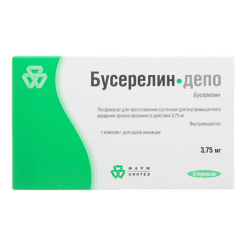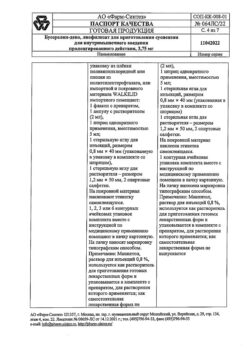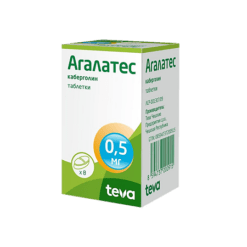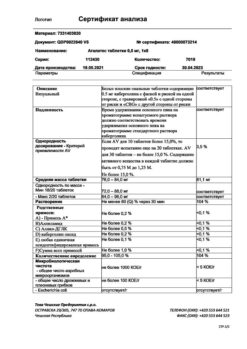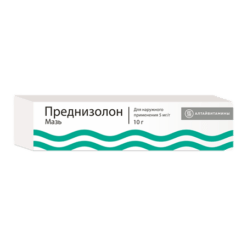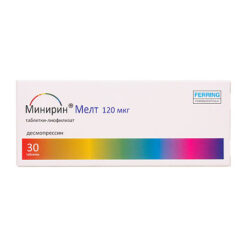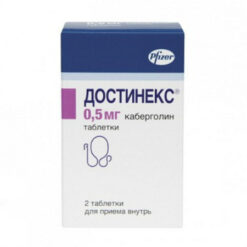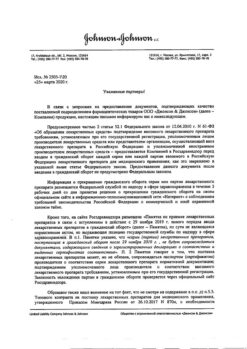No products in the cart.
Cyclo-Progynova, tablet set 0.5 mg+2 mg and 2 mg 21 pcs
€42.60 €35.50
Description
CYCLO-Progynova is estrogenic, estrogen-gestagenic.
Makes up for insufficient production of endogenous estrogens, reduces the level of LDL cholesterol in the blood.
Cures somatic, mental and other menopausal symptoms during pre- and postmenopause; prevents the reduction of bone mass and osteoporosis.
Hormone replacement therapy reduces the risk of cardiovascular diseases; in combination with gestagen it prevents the development of proliferative processes in the endometrium.
Indications
Indications
hormone replacement therapy (HRT) for menopausal disorders, involutional changes in the skin and genitourinary tract, depressive states during menopause, as well as symptoms of estrogen deficiency due to natural menopause or hypogonadism, sterilization or primary ovarian dysfunction in women with a non-removed uterus;
prevention of postmenopausal osteoporosis;
normalization of irregular menstrual cycles;
treatment of primary or secondary amenorrhea.
Pharmacological effect
Pharmacological effect
CYCLO-PROGINOVA – estrogenic, estrogen-gestagenic.
Replenishes insufficient production of endogenous estrogens, reduces LDL cholesterol levels in the blood.
Relieves somatic, mental and other menopausal symptoms during pre- and postmenopausal periods; prevents loss of bone mass and osteoporosis.
Hormone replacement therapy reduces the risk of developing cardiovascular diseases; in combination with gestagen – prevents the development of proliferative processes in the endometrium.
Special instructions
Special instructions
Cyclo-Proginova is not used for contraception.
If contraception is necessary, non-hormonal methods should be used (with the exception of calendar and temperature methods). If pregnancy is suspected, you should stop taking the pills until pregnancy can be ruled out (see section “Pregnancy and lactation”).
If any of the following conditions or risk factors are present or worsening, the individual risk-benefit ratio of treatment should be assessed before starting or continuing HRT.
Venous thromboembolism
A number of controlled randomized as well as epidemiological studies have revealed an increased relative risk of developing venous thromboembolism (VTE) during HRT, i.e. deep vein thrombosis or pulmonary embolism. Therefore, when prescribing HRT to women with risk factors for VTE, the risk-benefit ratio of treatment should be carefully weighed and discussed with the patient.
Risk factors for developing VTE include individual and family history (the presence of VTE in first-degree relatives at a relatively young age may indicate a genetic predisposition) and severe obesity. The risk of VTE also increases with age. The possible role of varicose veins in the development of VTE remains controversial.
The risk of VTE may temporarily increase with prolonged immobilization, “major” elective and trauma surgeries, or major trauma. Depending on the cause or duration of immobilization, the question of the advisability of temporarily stopping HRT should be decided.
Treatment should be stopped immediately if symptoms of thrombotic disorders appear or if their occurrence is suspected.
Arterial thromboembolism
Randomized controlled trials with long-term use of combined conjugated estrogens and medroxyprogesterone acetate did not provide evidence of a beneficial effect on the cardiovascular system. In large-scale clinical trials of this compound, a possible increased risk of coronary disease was identified in the first year of use. An increased risk of stroke was also found. To date, no long-term randomized controlled trials have been conducted with other HRT drugs to identify beneficial effects on cardiovascular morbidity and mortality. It is therefore unknown whether this increased risk applies to HRT products containing other types of estrogens and progestogens.
Endometrial cancer
With long-term estrogen monotherapy, the risk of developing endometrial hyperplasia or carcinoma increases. Studies have confirmed that the addition of gestagens reduces the risk of endometrial hyperplasia and cancer.
Breast cancer
Clinical trial data and observational studies have found an increase in the relative risk of developing breast cancer in women using HRT for several years. This may be due to earlier diagnosis, the biological effects of HRT, or a combination of both. The relative risk increases with the duration of treatment and may increase even more when estrogens are combined with progestogens. This increase is comparable to the increase in the risk of breast cancer in women with each year of delay in the onset of natural menopause, as well as with obesity and alcohol abuse. The increased risk gradually decreases to normal levels over the first few years after stopping HRT.
According to research, breast cancer detected in women taking HRT is usually more differentiated than in women not taking it.
HRT increases mammographic breast density, which in some cases may have a negative effect on X-ray detection of breast cancer.
Liver tumor
During the use of sex steroids, which include drugs for HRT, in rare cases benign, and even more rarely, malignant liver tumors were observed. In some cases, these tumors have resulted in life-threatening intra-abdominal bleeding. If there is pain in the upper abdomen, an enlarged liver, or signs of intra-abdominal bleeding, the differential diagnosis should take into account the possibility of a liver tumor.
Gallstone disease
It is known that estrogens increase the lithogenicity of bile. Some women are predisposed to developing gallstones when treated with estrogen.
Other states
Treatment should be stopped immediately if migraine-like or frequent and unusually severe headaches appear for the first time, as well as if other symptoms appear – possible precursors of a thrombotic stroke of the brain.
The relationship between HRT and the development of clinically significant arterial hypertension has not been established. A slight increase in blood pressure has been described in women taking HRT; clinically significant increases are rare. However, in some cases, if persistent clinically significant arterial hypertension develops while taking HRT, discontinuation of HRT may be considered.
For mild liver dysfunction, including various forms of hyperbilirubinemia, such as Dubin-Johnson syndrome or Rotor syndrome, medical supervision is necessary, as well as periodic liver function tests. If liver function tests worsen, HRT should be discontinued.
If cholestatic jaundice or cholestatic pruritus, observed for the first time during pregnancy or previous treatment with sex steroid hormones, recurs, HRT should be stopped immediately.
Special monitoring is required for women with moderately elevated triglyceride levels. In such cases, the use of HRT may cause a further increase in blood triglyceride levels, which increases the risk of acute pancreatitis.
Although HRT may affect peripheral insulin resistance and glucose tolerance, there is usually no need to change the treatment regimen of diabetic patients when undergoing HRT. However, women with diabetes should be monitored when undergoing HRT.
Some patients under the influence of HRT may develop undesirable manifestations of estrogen stimulation, such as abnormal uterine bleeding. Frequent or persistent pathological uterine bleeding during treatment is an indication for endometrial examination.
If treatment for irregular menstrual cycles does not produce results, an examination should be performed to exclude an organic disease.
Under the influence of estrogens, uterine fibroids can increase in size. In this case, treatment should be stopped.
It is recommended to discontinue treatment if endometriosis relapses during HRT.
If prolactinoma is suspected, this disease should be excluded before starting treatment.
In some cases, chloasma may occur, especially in women with a history of chloasma during pregnancy. During HRT, women prone to chloasma should avoid prolonged exposure to the sun or ultraviolet radiation.
The following conditions may occur or be aggravated by HRT. Although their relationship with HRT has not been proven, women with these conditions should be under medical supervision when undergoing HRT: epilepsy; benign breast tumor; bronchial asthma; migraine; porphyria; otosclerosis; systemic lupus erythematosus, chorea minor.
Medical examination and consultation
Before starting or resuming HRT, a woman is recommended to undergo a thorough general medical and gynecological examination (including examination of the mammary glands and cytological examination of cervical mucus) and exclude pregnancy. In addition, disorders of the blood coagulation system should be excluded. Control examinations should be carried out periodically.
Impact on laboratory results
Taking sex steroids can affect biochemical indicators of the function of the liver, thyroid gland, adrenal glands and kidneys, the plasma content of transport proteins, such as corticosteroid binding globulin and lipid/lipoprotein fractions, indicators of carbohydrate metabolism, coagulation and fibrinolysis.
Impact on the ability to drive vehicles and operate machinery
No effect.
Active ingredient
Active ingredient
Norgestrel, Estradiol valerate; Estradiol valerate [set]
Composition
Composition
Active ingredients:
estradiol valerate,
norgestrel;
Auxiliary means:
lactose monohydrate;
corn starch;
povidone 25000;
talc;
magnesium stearate;
crystalline sucrose;
povidone 700000,
macrogol 6000;
calcium carbonate;
wax.
Contraindications
Contraindications
It is not recommended to start hormone replacement therapy (HRT) if you have any of the following conditions. If any of these conditions occur during HRT, you should immediately stop using the drug.
pregnancy and lactation;
vaginal bleeding of unknown origin;
confirmed or suspected diagnosis of breast cancer;
confirmed or suspected diagnosis of a hormone-dependent precancerous disease or hormone-dependent malignant tumor;
liver tumors currently or in history (benign or malignant);
severe liver disease;
acute arterial thrombosis or thromboembolism (such as myocardial infarction, stroke);
deep vein thrombosis in the acute stage, thromboembolism currently or in history;
severe hypertriglyceridemia;
hypersensitivity to the components of the drug Cyclo-Proginova.
Side Effects
Side Effects
In rare cases – headaches, nausea, stomach dysfunction, breast engorgement, changes in body weight, uterine bleeding, chloasma.
Interaction
Interaction
When starting HRT, you must stop using hormonal contraceptives. If necessary, the patient should be advised to use non-hormonal contraceptives.
Long-term treatment with drugs that induce liver enzymes (for example, some anticonvulsants and antimicrobial drugs) may increase the clearance of sex hormones and reduce their clinical effectiveness. A similar property to induce liver enzymes has been found in hydantoins, barbiturates, primidone, carbamazepine and rifampicin, and the presence of this feature is also suggested in oxcarbazepine, topiramate, felbamate and griseofulvin. Maximum enzyme induction is usually observed no earlier than 2-3 weeks, but it may then persist for at least 4 weeks after discontinuation of the drug.
In rare cases, during concomitant use of certain antibiotics (for example, penicillin and tetracycline groups), a decrease in estradiol levels was observed.
Substances that are highly conjugated (for example, paracetamol) may increase the bioavailability of estradiol due to competitive inhibition of the conjugation system during absorption.
Due to the effect of HRT on glucose tolerance, the need for oral antidiabetic agents or insulin may change in some cases.
Interaction with alcohol:
Excessive alcohol consumption during HRT may increase circulating estradiol levels.
Storage conditions
Storage conditions
Store under normal conditions.
Shelf life
Shelf life
5 years
Manufacturer
Manufacturer
Bayer Weimar GmbH & Co. KG, Germany
Additional information
| Shelf life | 5 years |
|---|---|
| Conditions of storage | Store under normal conditions. |
| Manufacturer | Bayer Weimar GmbH & Co. KG, Germany |
| Medication form | tablet set |
| Brand | Bayer Weimar GmbH & Co. KG |
Related products
Buy Cyclo-Progynova, tablet set 0.5 mg+2 mg and 2 mg 21 pcs with delivery to USA, UK, Europe and over 120 other countries.

